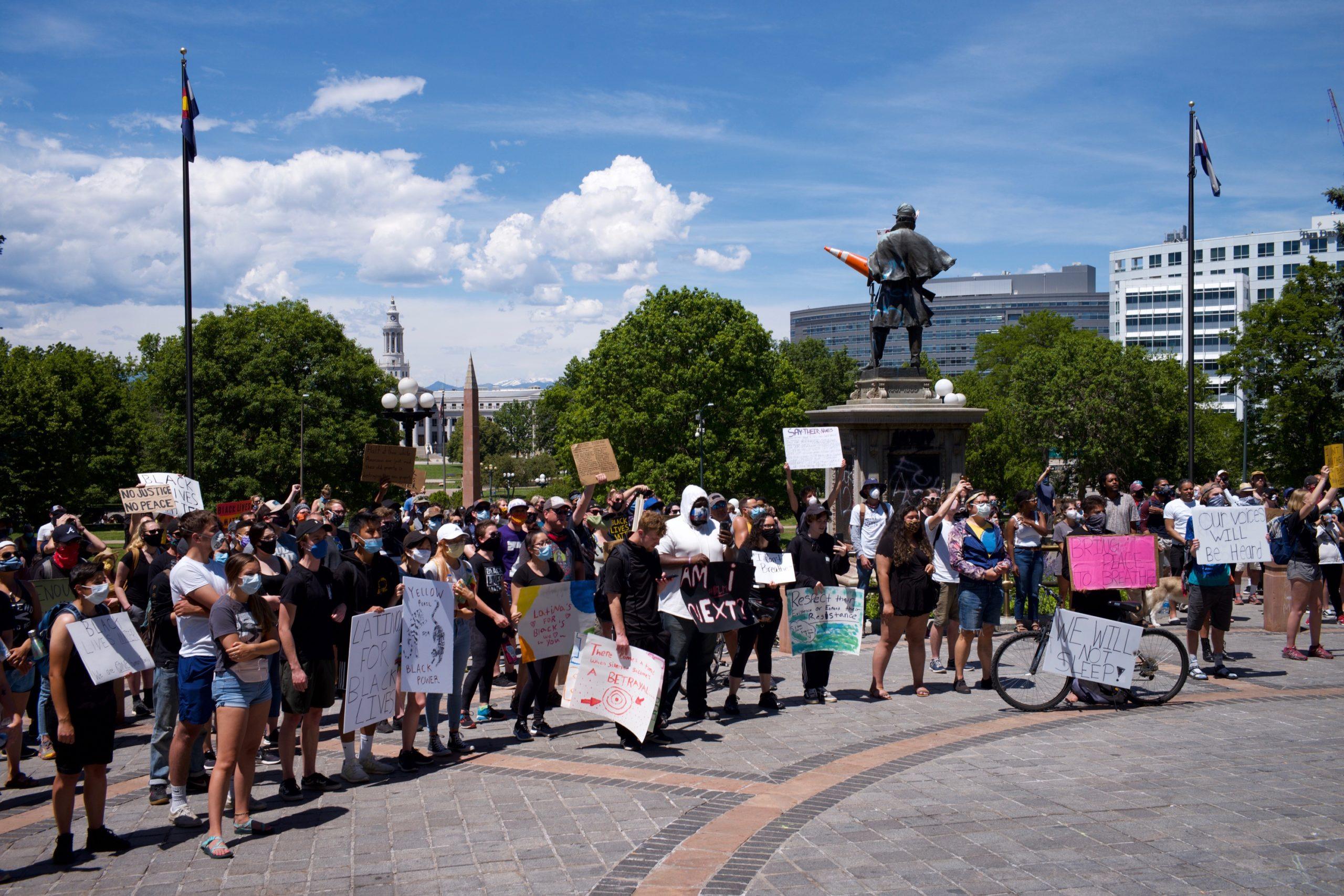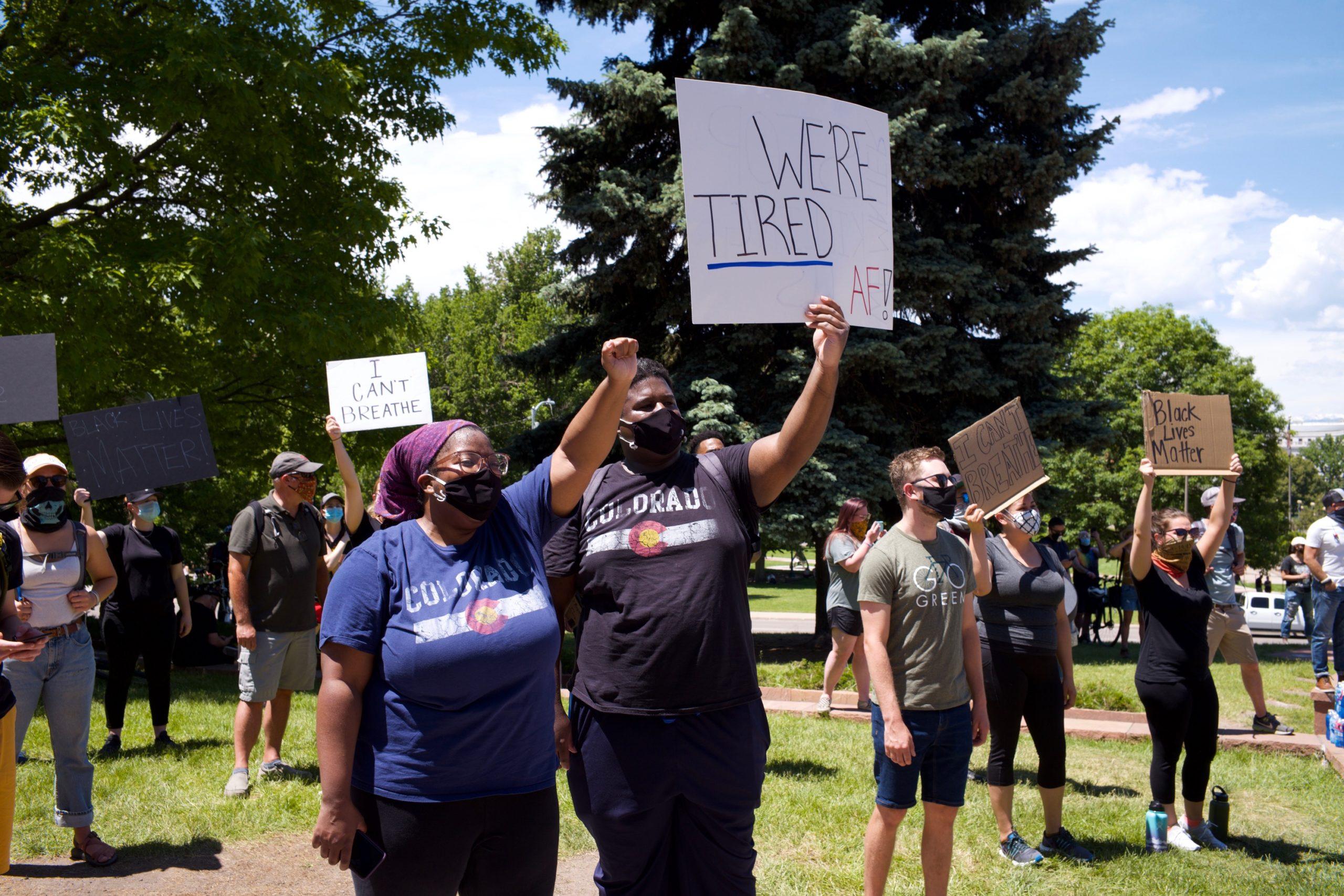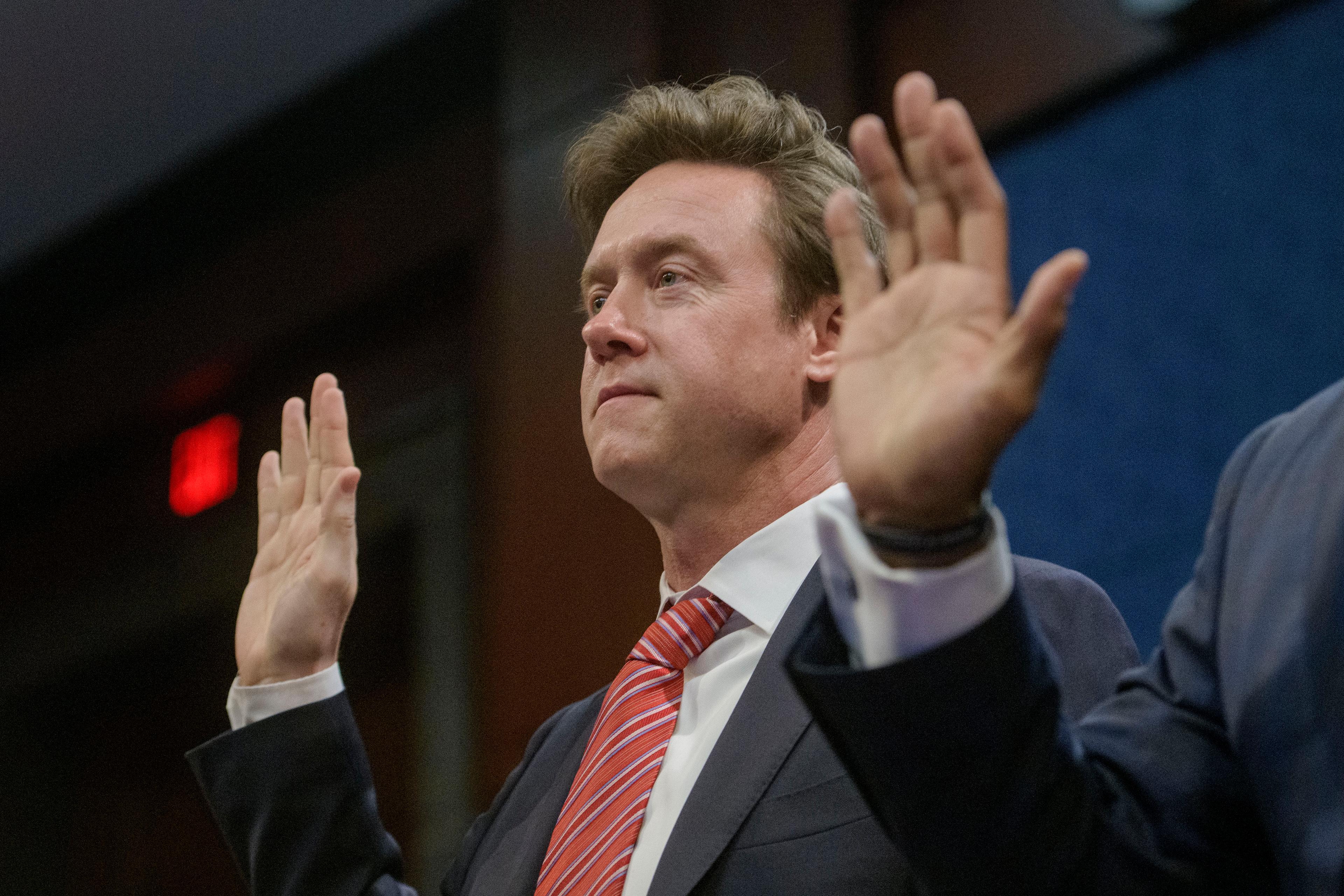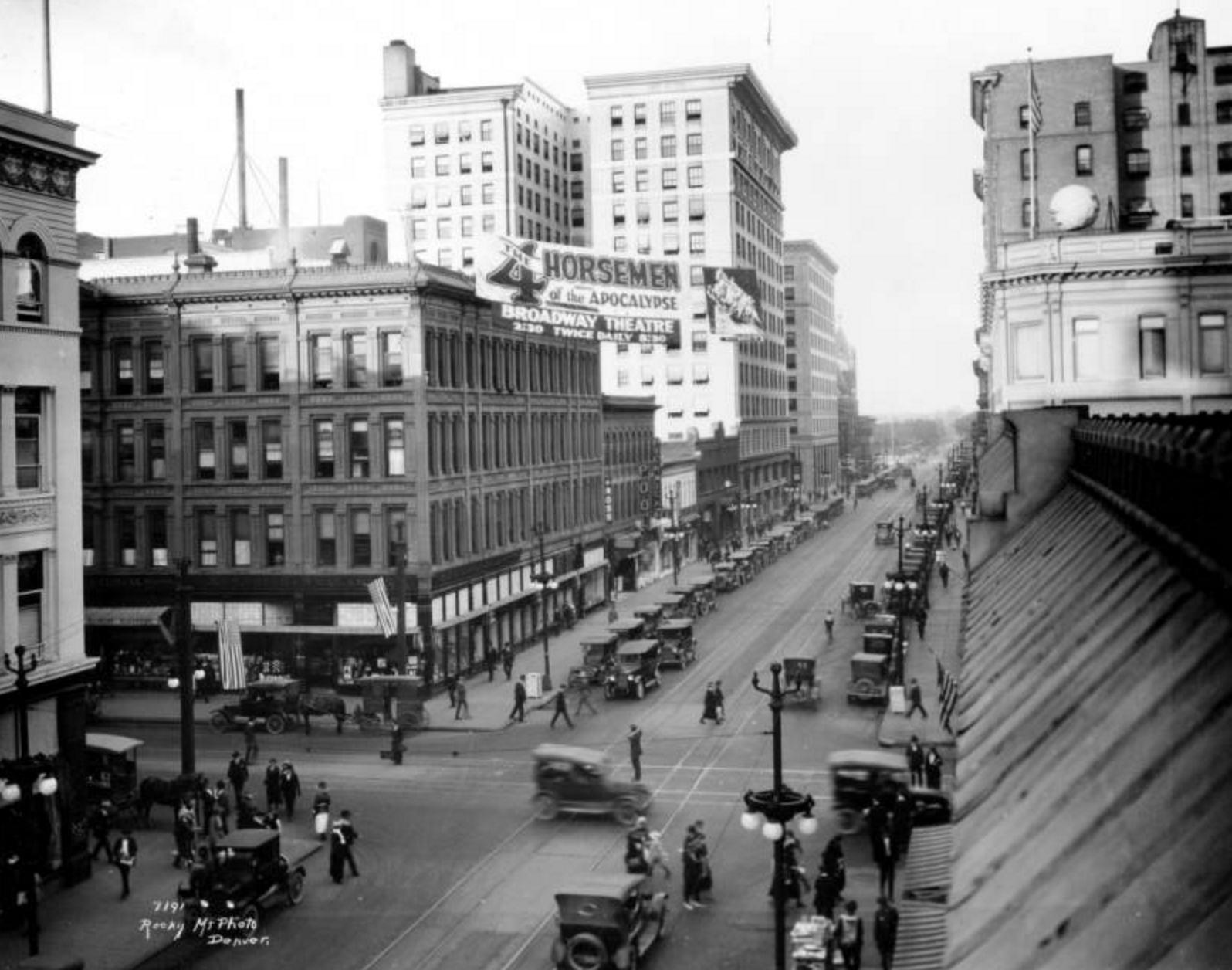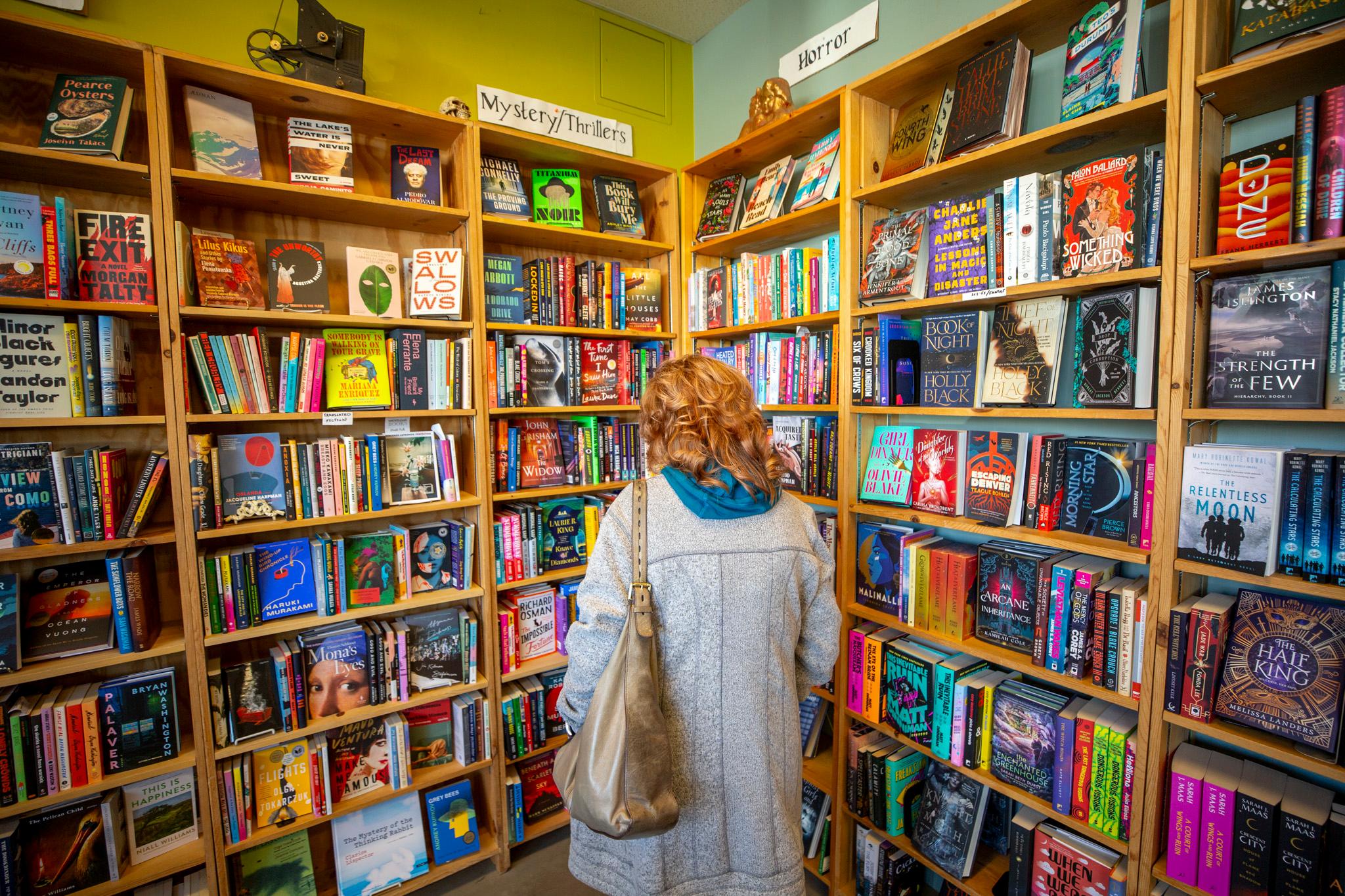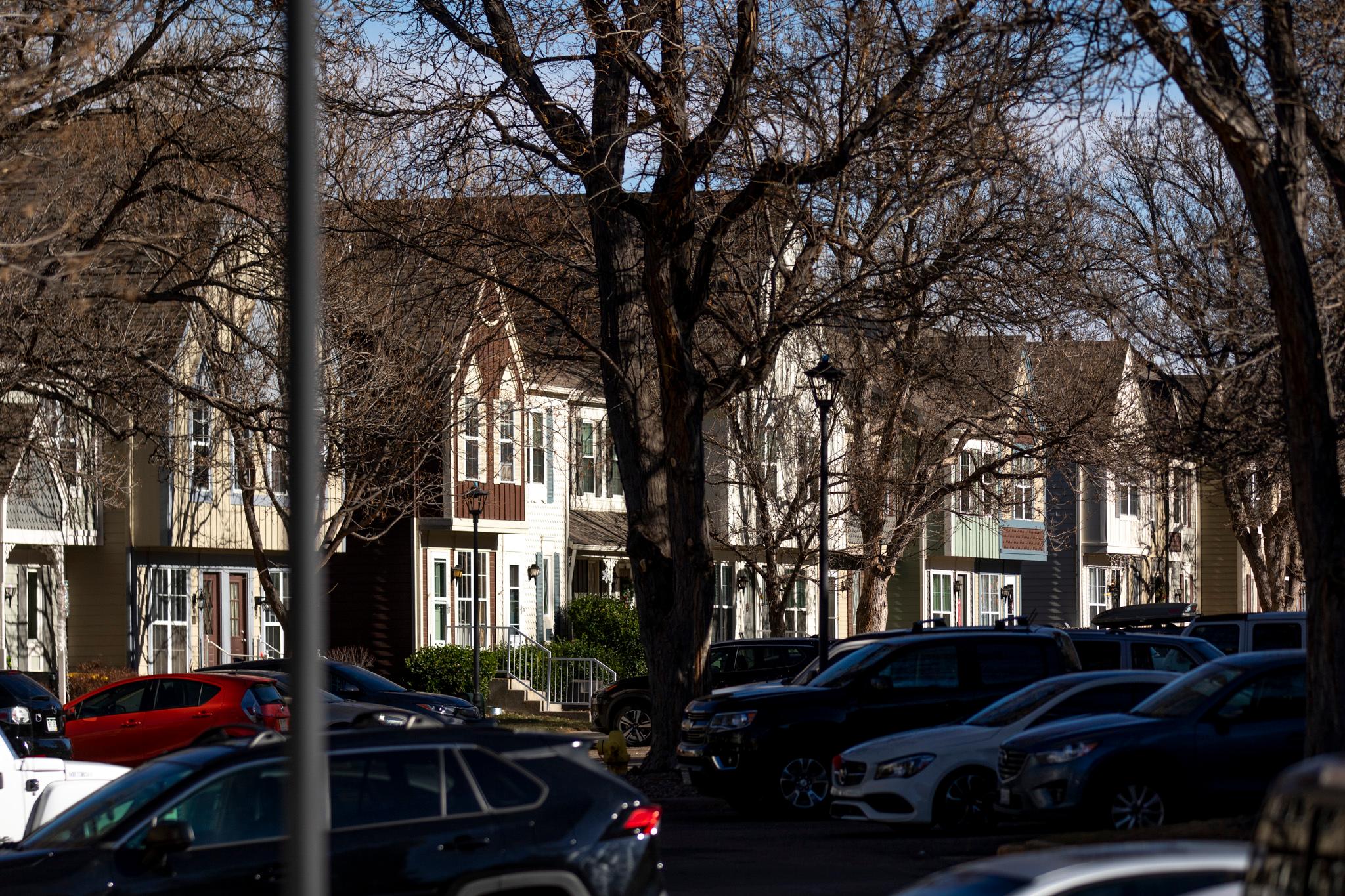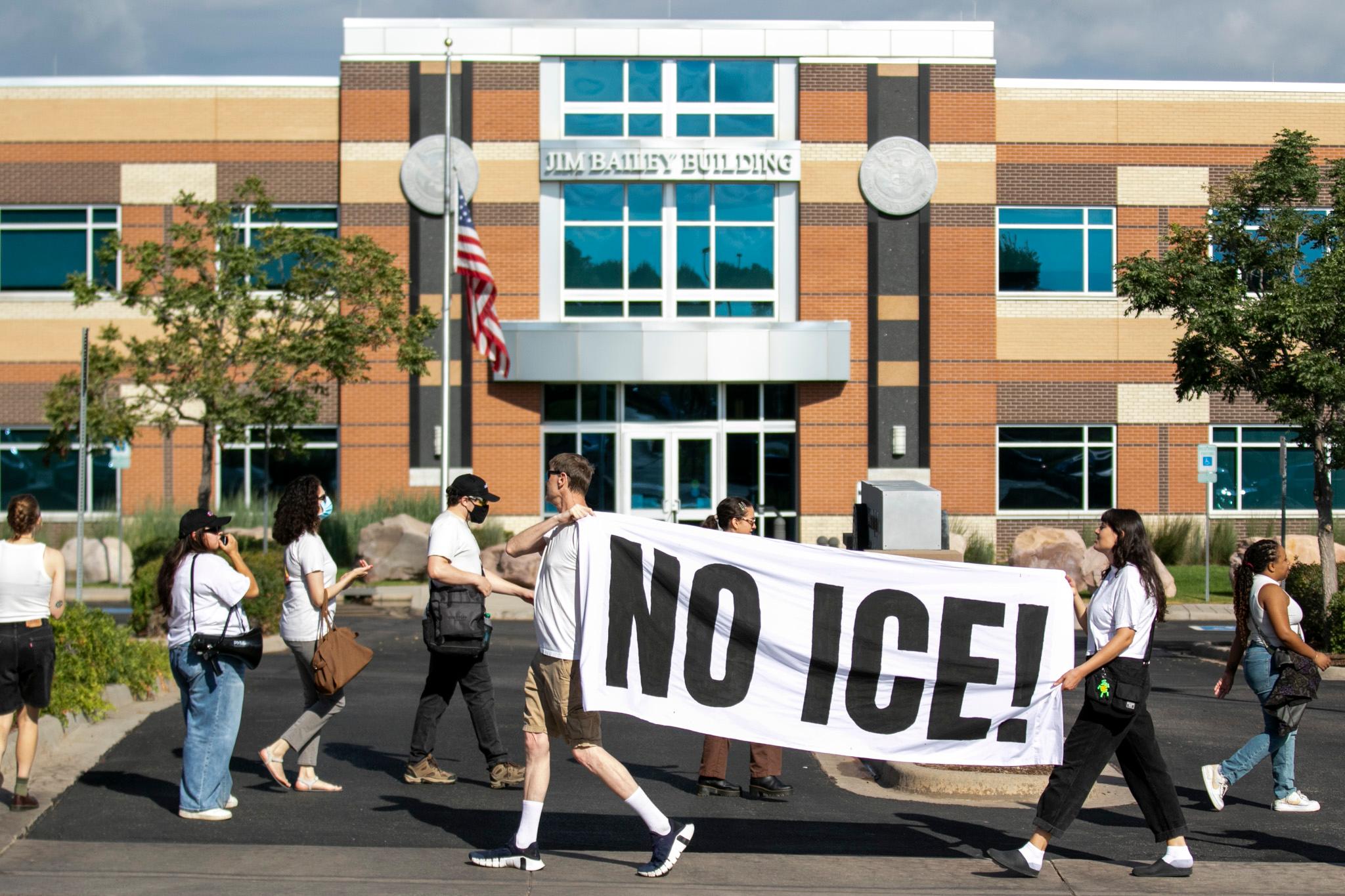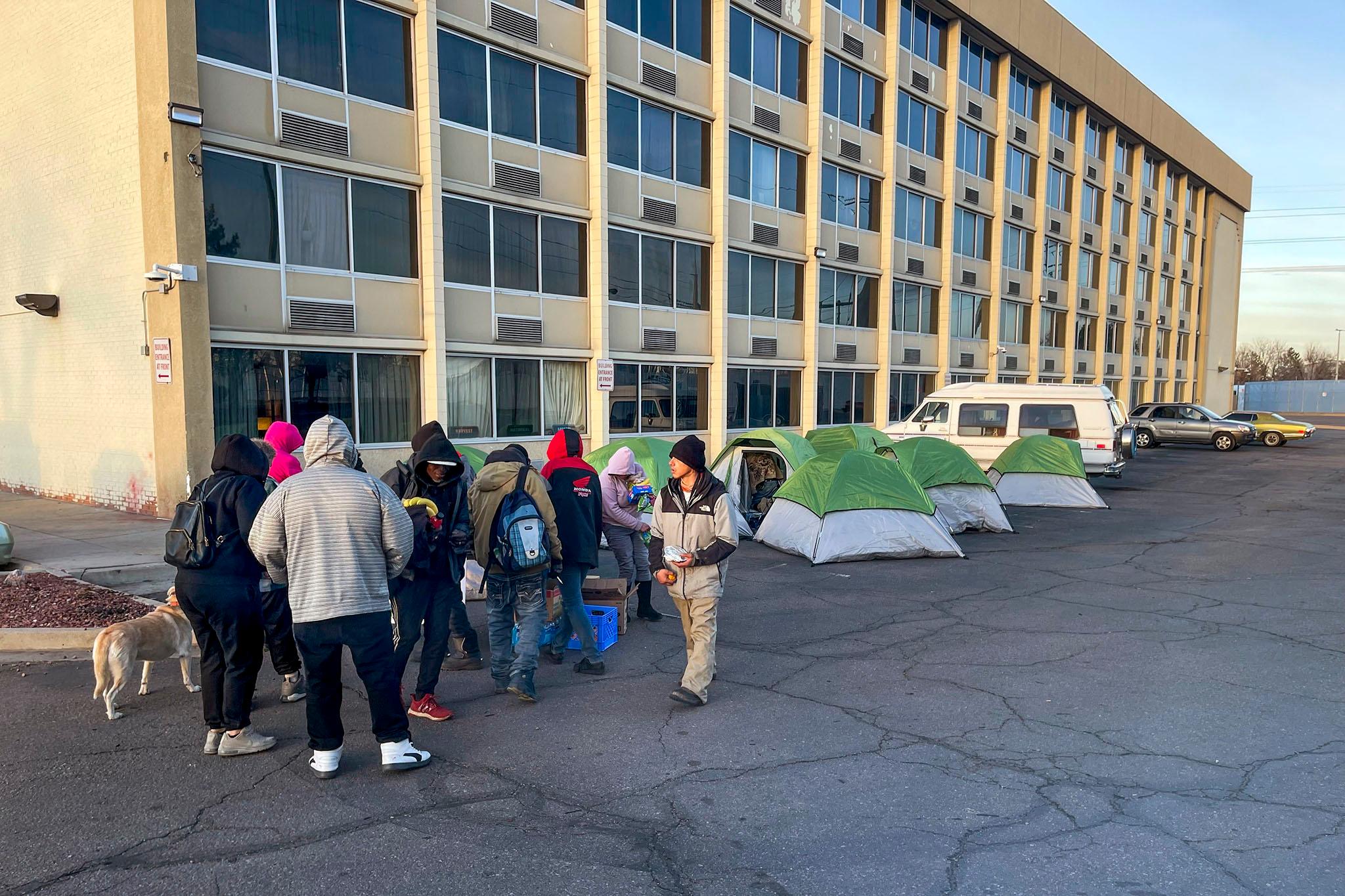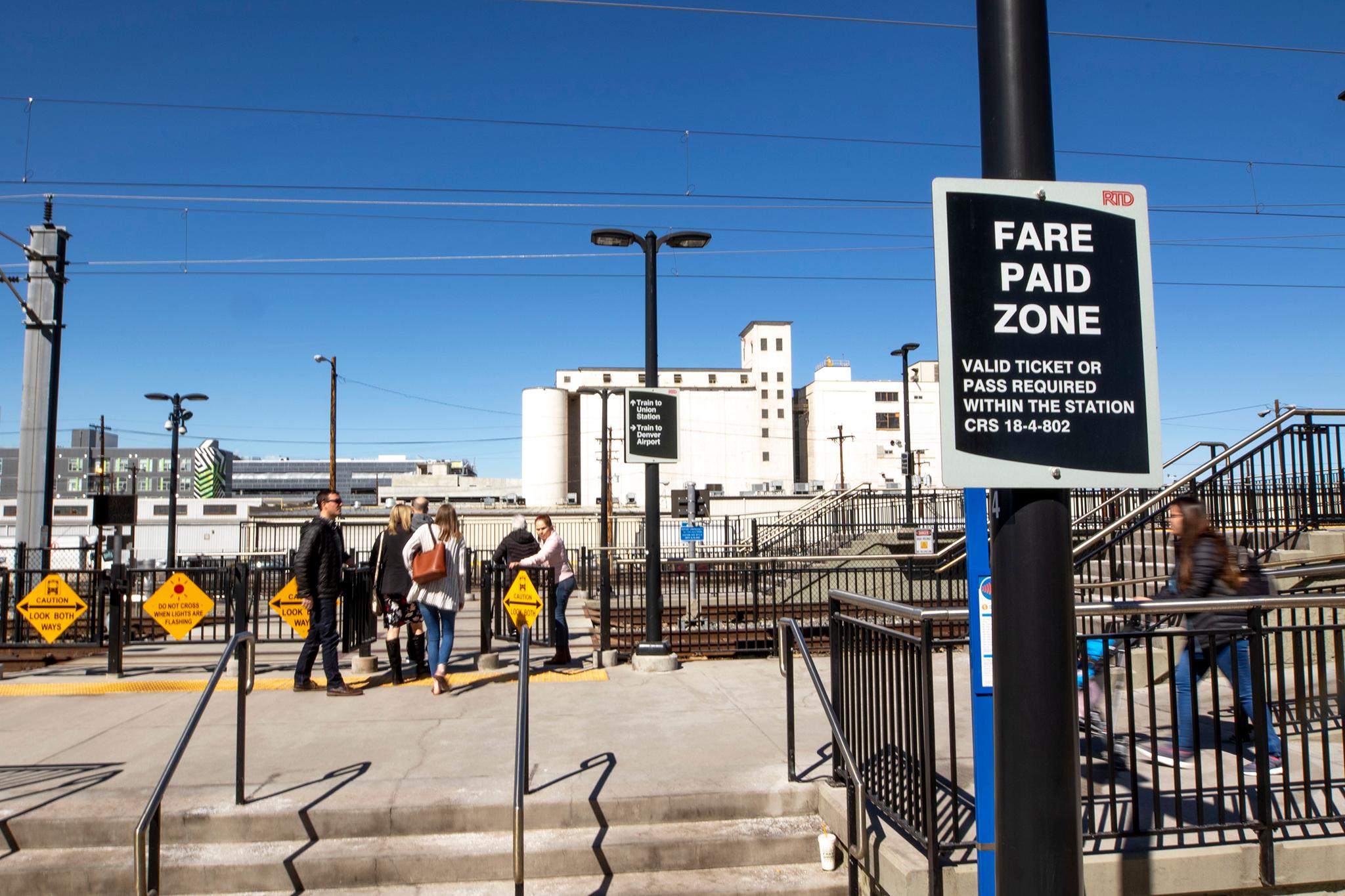Holding signs with slogans like "WE'RE TIRED AF" and chanting "I can't breathe," hundreds of protesters were out again in Denver demonstrating outrage over the death of George Floyd while in police custody in Minneapolis. And anger over many other killings like it. And fear for their family members. And the anxiety of being Black in America.
Warren Harris said he doesn't support violence and said that it's wrong to destroy businesses, as some protesters did Saturday night after the end to the organized demonstration, but he can understand the anger.
"This happened because the police kept doing the same thing over and over again and the government didn't do anything about it. As wrong as it is, they pushed them to this point."
He said being a Black man in 2020 is "horrible."
"My heart races every time I pass by a cop car or a cop car just passes me. I shake and get all defensive every time there's a cop car behind me. That's how bad it is. I shouldn't be afraid... this is not right.
"We are all in a world where we should mesh together for human rights. We have to be consistent -- keep standing for human rights all together to make sure this never happens again."
Protesters marched their way around downtown, visiting the Capitol, the amphitheater in Civic Center Park and the Denver Performing Arts Center. At about 4 p.m., they formed a prayer circle back at the Capitol, where one speaker said, "Father we need you today, to heal our land."
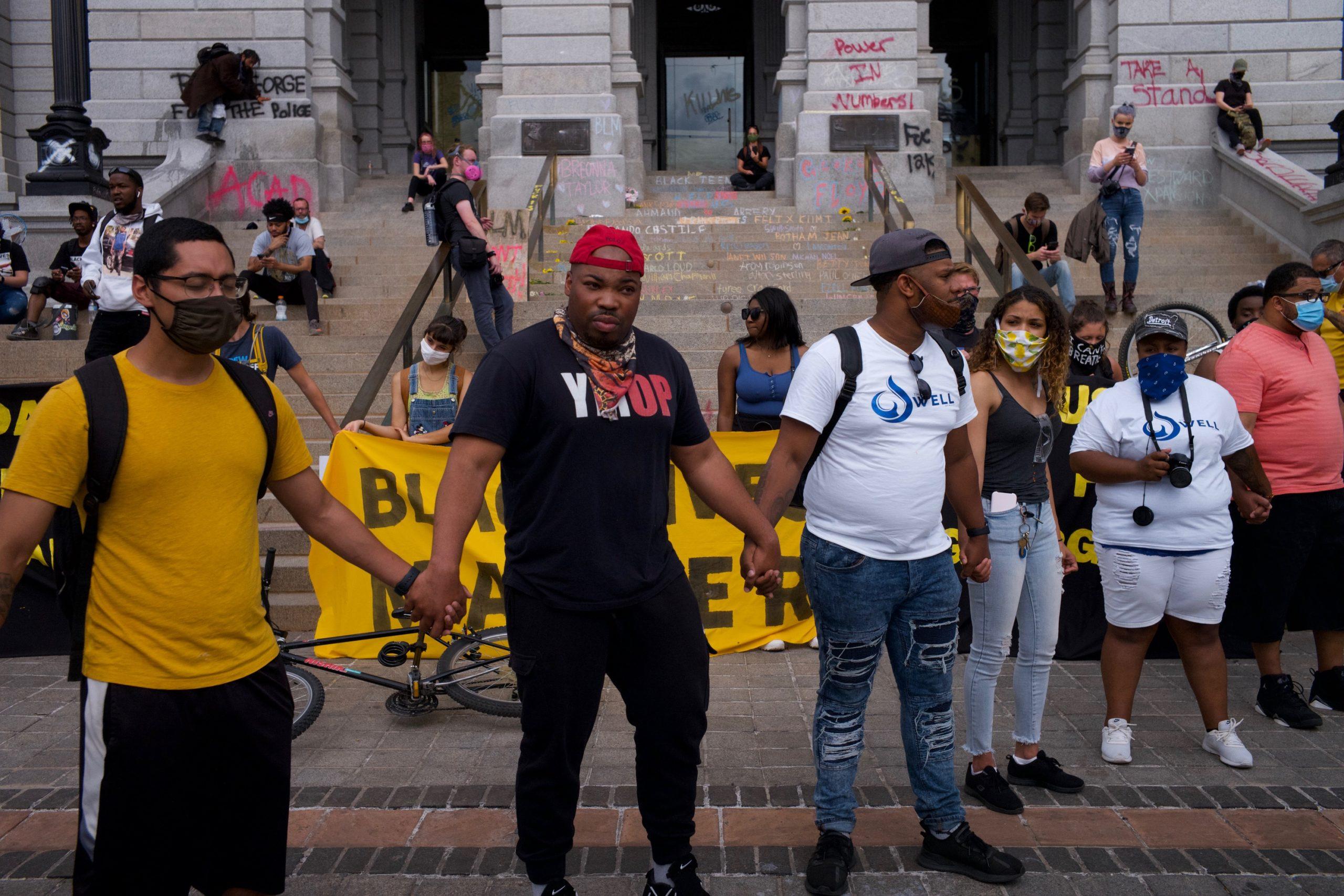
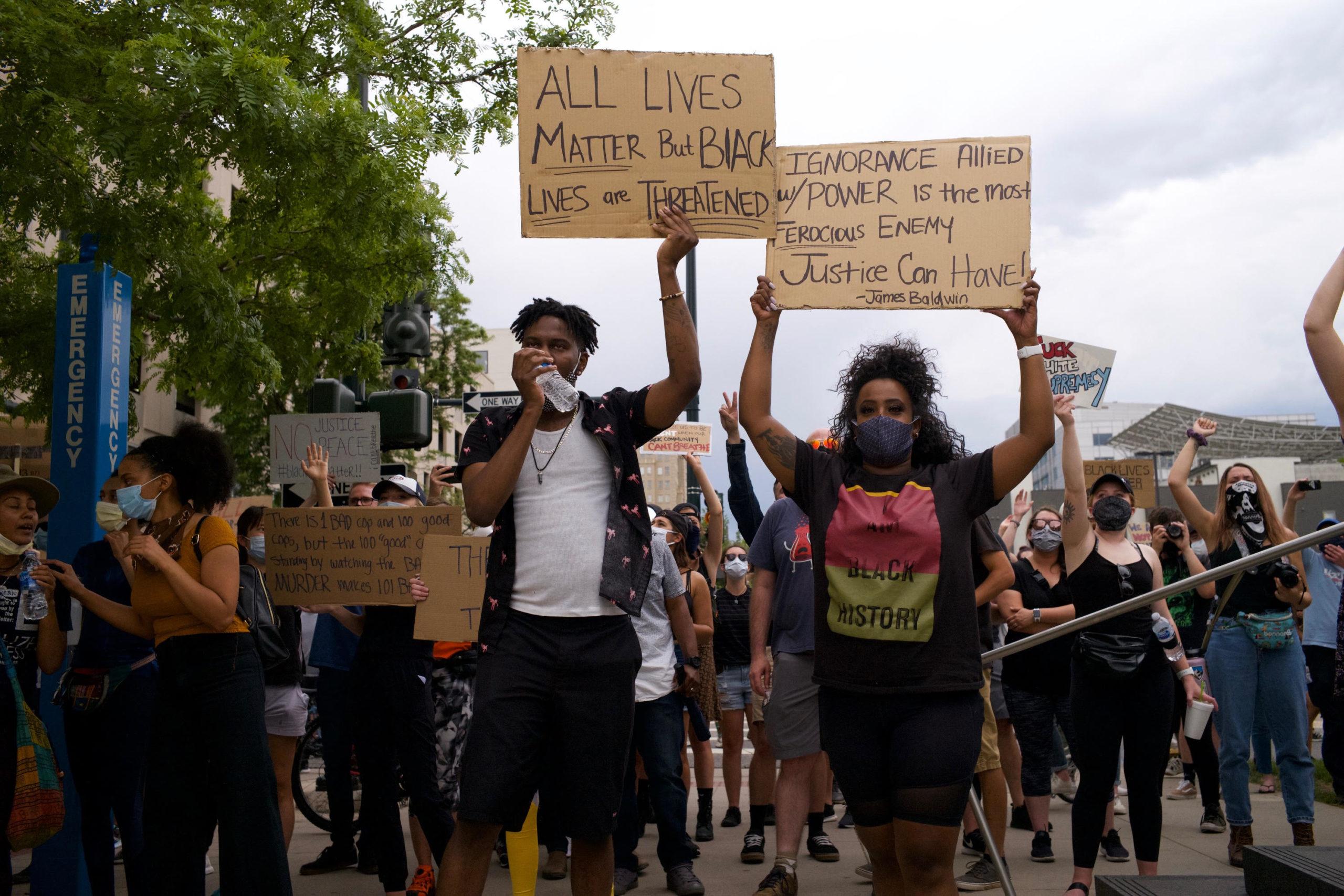
Carl Glenn Payne/For Denverite
Claire Westcott said she came to the protest after seeing George Floyd's death, which she characterized as murder. She was joined by her dog, Butter.
"I couldn't help but think that police brutality is today's lynching," Westcott said. "It really struck home. It made me very sad. I think it's important to be here." Westcott, who identifies as African American and Native American, said she showed up on Sunday for other people in the country.
While she's dealt with some harassment, she said she has mostly felt safe. She's been part of protests in the past. But she said these protests have been far more intense than anything she's participated in.
"I'm hoping that by seeing how angry people are, that strikes home with a lot of people," Westcott said. "I also hope that by coming here, people know they're not alone. That they know that there are other people who are angry for them and want justice in this country."
Westcott also brought trash bags and gloves to help with clean-up efforts around the Capitol.

Yvonne Maina, a Denverite originally from Kenya, said she was at the rally for her 20-year-old brother.
Through tears, she said last week he was followed in a car by four white men as he was driving home.
"He couldn't lose them for 30 minutes and it's just so tangible, the fear."
She said the four white men drove up to the side of her brother's car, made eye contact, and followed him as he drove home. He tried to lose them, driving to a parking lot but the men followed and parked right next to him. He eventually got home safely.
"It's very worrying. It's unfortunately not new to him, that kind of fear and having to navigate from a place of worrying if he'll be able to go home. He's resigned to the fact that maybe this is how things are but I'm hoping that I can give him some hope that things can change."
Denver resident Ruthie Sumlin started a chant for Elijah McClain, a Black man who died after an encounter with Aurora police last year, during Sunday's protest as she stepped aside for an interview. Sumlin, who is Black, said she has siblings whom she worries about having encounters with police.
"This has been a 400-plus-year fight," Sumlin said.
She said she wants to be treated fairly. Standing next to the state Capitol, where a makeshift memorial for Black Americans killed by police had been formed, Sumlin said she felt anger and anxiety.
"We shouldn't have to do this," she said. "We shouldn't."

Carl Glenn Payne/For Denverite
The officers who arrived early in the gathering included some from Commerce City and Brighton, and as late as about 12:45 p.m., a Denverite reporter had yet to see a uniformed Denver officer. The scene then was peaceful, apart from a few people, mostly white women, shouting obscenities at some of the officers.
Earlier Sunday morning, Capitol Hill awoke to a chemical smell hanging in the air.
People cleaned graffiti off of the Capitol, and volunteers and city crews picked up pepper bullet cases, water bottles and other remnants of the conflict Saturday night that saw police and a few hundred protesters face off hours after thousands of people peacefully demonstrated.
Police pushed protesters away from the Capitol Saturday night, creating smaller, separate groups in different parts of downtown. Denver Health reported that 45 people needed medical care during the protest.
Today is the fourth consecutive day of demonstrations downtown, and the second under a new 8 p.m. curfew set Saturday by Mayor Michael Hancock. About 100 people were near the Capitol as early as 11:30 a.m. Police in riot gear arrived on the scene at the state Capitol building around 12:30 p.m.
The crowd grew to several hundred in the Civic Center Park amphitheater before 2 p.m.
This is a developing story and will be updated. CPR News reporter Jenny Brundin contributed reporting to this story.
